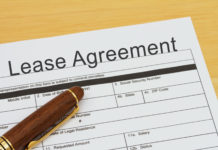By 2020, it is expected that Millennials will spend $1.4 trillion each year on travel. Want to get a piece of that very large pie? Well then owning a vacation rental is the way to go.
To ensure success, you need to have a rock solid vacation rental agreement. Otherwise, you risk your rental property costing you money from people doing things that cause damage.
So let’s go over some key topics that your rental agreement should cover.
Why Do You Need an Agreement?
A rental agreement protects you while your guests stay in your rental. This is standard practice; even hotels have you sign an agreement for just one night on their property.
Your vacation rental agreement is a legally binding contract between you and the renter. It is the ideal place to list out all of the “house rules” and any repercussions for not following them.
Now you can hold your guests accountable for their behavior when they break the rules.
1. Who’s Making the Agreement
Obviously, you are one of the parties to the agreement. But you also need to include the full name of the person who you intend to rent to.
To be extra cautious, you should also ask for and include the name of their guests. It is wise during this phase to put a limit on the maximum occupancy of your rental.
You’ll want to have a maximum listed for how many people will stay at the rental. Then you’ll want to have a maximum listed for how many people can be at the rental at a given time. This will prevent your renters from throwing a wild party at your property.
2. What Will You Provide
Spell out specifically what you will provide as a part of the rental. List out any amenities that are available. It is also advisable to note the condition of the rental and amenities.
Don’t be afraid to get specific with the list. You’ll want to think about home goods such as towels, linens, kitchen appliances and utensils, and any furniture inside and out.
3. How Long Is the Rental?
Include the exact days and dates that you will rent the property. You also need to include the check in and check out procedures. To eliminate confusion, specify a time for these.
You should also think about a provision for when your guests want early check-in or late check-out. If your vacation rental is booked solid, you may want to charge extra costs if your guests stay later than agreed upon.
If you have home automation for check-in and check-out, you’ll want to outline this in this section also. Be sure to spell out the procedures for guests to obtain entrance to the property.
4. Where Is the Rental?
This may seem obvious, but it is an absolute must that you include the specific location of the rental. The best thing to do is check with an attorney for the specific requirement for your vacation per your city and state.
The most basic requirements will include the address of the property. Then a short description of the place to include how many bedrooms and bathrooms are included.
5. Having Guests Removed
No one ever wants to think about this part, but it is essential that you spell out the circumstances in which you will have someone removed from your rental. State in plain language the house rules and their consequences. This will help you avoid tenants from hell.
These are the serious offenses that if broken you will want to remove your guests immediately. For instance, we covered having a guest limit to prevent huge parties from being thrown. So for this section, you can clearly explain you have the right to ask your renters to immediately leave if they get caught throwing a party.
Another common condition in this section is a no smoking clause. A third common rule is to prevent pets.
All of these rules prevent expensive damage from occurring in your vacation rental. If you don’t want smoking or pets in your rental, and they happen anyway, you’ll have some expensive cleaning bills. You’ll need to ensure the rental has no traces of either for the next guests.
Local Rules
Some other rules to include in this section are not yours, but your local municipality’s. These would include any parking, trash, or recycling rules.
If these rules don’t get followed it could create conflict between you and the vacation rental’s neighbors. Or you could incur fines.
6. What’s the Cost?
Let’s not forgot the cash! You need to include how much you charge for the vacation rental. Break down the cost so it is clear to everyone what guests will pay for.
List the total cost, rental cost, deposit, security deposit, and a cleaning fee. This is also the section to outline if any of these are refundable, such as the security deposit.
Optional Costs
You may also offer optional services for an additional fee. This could be pet fees if you allow pets.
Or you may list out options such as the ability to use the hot tub, or catering, or even having the fridge stocked. Be sure to clearly outline that these are extra costs and what they are.
Then create a place where you and the renter can mark whether or not they should be added into the total cost. For complete transparency, have a “yes” or “no” checkmark section and then you each initial it.
7. Cancelations
Nothing is more frustrating than to think you have a month’s worth of booking income only to have your rentals cancel at the last minute. Now you are out the income, and it’s too late to get someone else in.
To help mitigate this loss, you can outline cancelation terms. The first thing this does is deter people who are likely to cancel.
Determine what your terms are for canceling with no consequences. Then at what point will you keep the deposit?
8. Scam Bookings
If your vacation rental is in a spring break hotspot, you might have more of a concern for this. What happens if a parent or older friend will book the rental?
But who shows up are a group of under 21 kids looking to party. You need a provision that gives you the right to remove these guests. You can use the reasoning that they booked under false pretenses.
9. Cleanliness
You need to spell out how you expect your guests to leave the property. Remember though; they are on vacation, so they don’t want to do a full spring clean.
You will probably be safe asking your guests to gather all of the used towels in the laundry. You could also ask that they strip the beds.
10. Your Access
Just like any other rental, your guests don’t want you randomly popping by the property. There may be times though when you must enter the property during guests stay.
Outline in the agreement what type of notice you will give guests in the event of maintenance issues or emergencies. This will help you get the issue resolved while avoiding complaints and disputes from your guests.
11. Property Specific Items
Since every property is different, your vacation rental may have specific requirements that need noting. For instance, maybe your property is not child-friendly.
Or you need to note that your property is suitable for a wheelchair user. This would include wider doorframes, bathrooms outfitted, and no steps or stairs.
There could be climate specific issues such as the entrance road becomes unpassable in a certain number of inches of snow. Or to be aware of flooding when it rains a certain amount.
Your vacation rental may not be a home; it could be a condo in a large complex. In this case, there are certain rules from the condo association that are specific to the property that must be followed.
Finally, there may be specific directions for how to work a particular appliance. For instance, don’t run the washing machine and the dishwasher at the same time.
Vacation Rental Agreement
Renting a vacation property can provide you with extra income and a real estate investment. But you need to make sure you have a rock solid vacation rental agreement.
This will protect you and your investment from the less than savory renters out there. While you may get lucky and have all dream guests, it only takes one to ruin the experience for you.




















